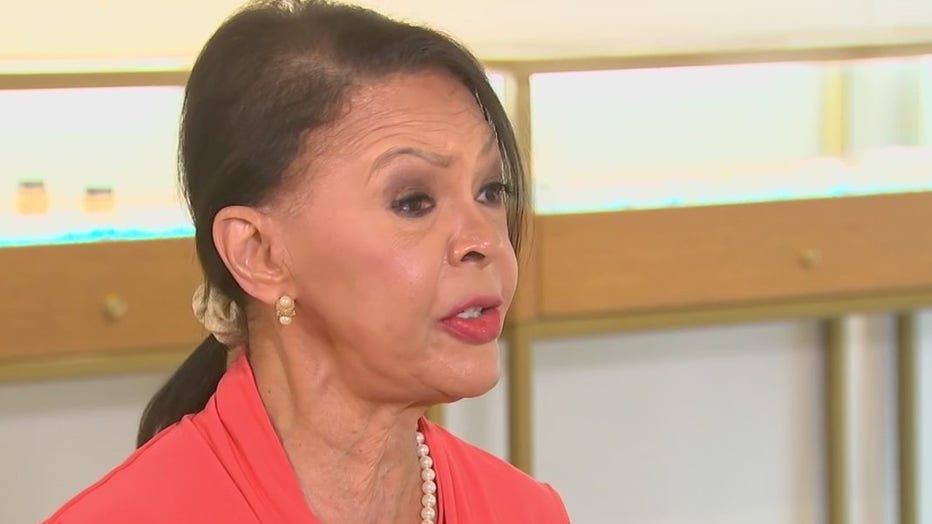Legalizing marijuana in Maryland could hurt smaller dispensaries

Legalizing marijuana in Maryland could hurt smaller dispensaries
Marylanders will soon be able to decide whether to legalize recreational marijuana in the state. If weed is legalized, it's going to have an economic impact that could be unpredictable. FOX 5's Katie Barlow spoke to one of the first licensed cannabis dispensary owners in the country Linda Mercado Greene about how legalization in Maryland will impact local business owners.
BETHESDA, Md. (FOX 5 DC) - Marylanders will soon be able to decide whether to legalize recreational marijuana in the state.
If weed is legalized, it's going to have an economic impact that could be unpredictable.
Medical marijuana dispensaries in Maryland have made over $388 million so far this year. If Maryland voters say yes to question four on Nov. 8, the state will become the 20th in the nation to legalize recreational marijuana — and the last to do so in our region.
Linda Mercado Greene, the owner of Anacostia Organics, told FOX 5 that legalization will be "really good for this tri-state area."
"It would make it more competitive," she explained. "And we're hoping that once cannabis, well once cannabis is legalized federally, we will have more interstate commerce. That will help us with product selection, product pricing, and everything else."
PREVIOUS COVERAGE: Maryland voters to decide whether to legalize marijuana
Greene was one of the first Black women in the country to get a medical marijuana license.
Her licensed dispensary has been open in Southeast D.C. since 2019. D.C. licensed dispensaries and cultivation centers have done $41.8 million in sales so far this year.

Greene says the illicit market in D.C. made over $600 million in revenue last year, according to New Frontier Data, an analytics firm specializing in the global cannabis industry.
Multistate marijuana retailers like Jushi Holdings and Columbia Care are opening storefronts in Virginia. Jushi Holdings opened Beyond Hello Fairfax — its 35th retail location nationwide and fourth in the Commonwealth
"As a mom-and-pop operation, I'm frightened because we know Amazon is getting in it," Mercado Greene said. "Other big box stores and industries are getting in it, so it's going to make it very difficult for small operations like mine to align ourselves with one of those multistate operators to survive, because we won't be able to compete with them."
If Maryland voters sanction a unified region on legal recreational marijuana, it will invite D.C., Maryland, and Virginia businesses to compete across state lines. That could be good for prices and product diversity but bad for local small businesses.

